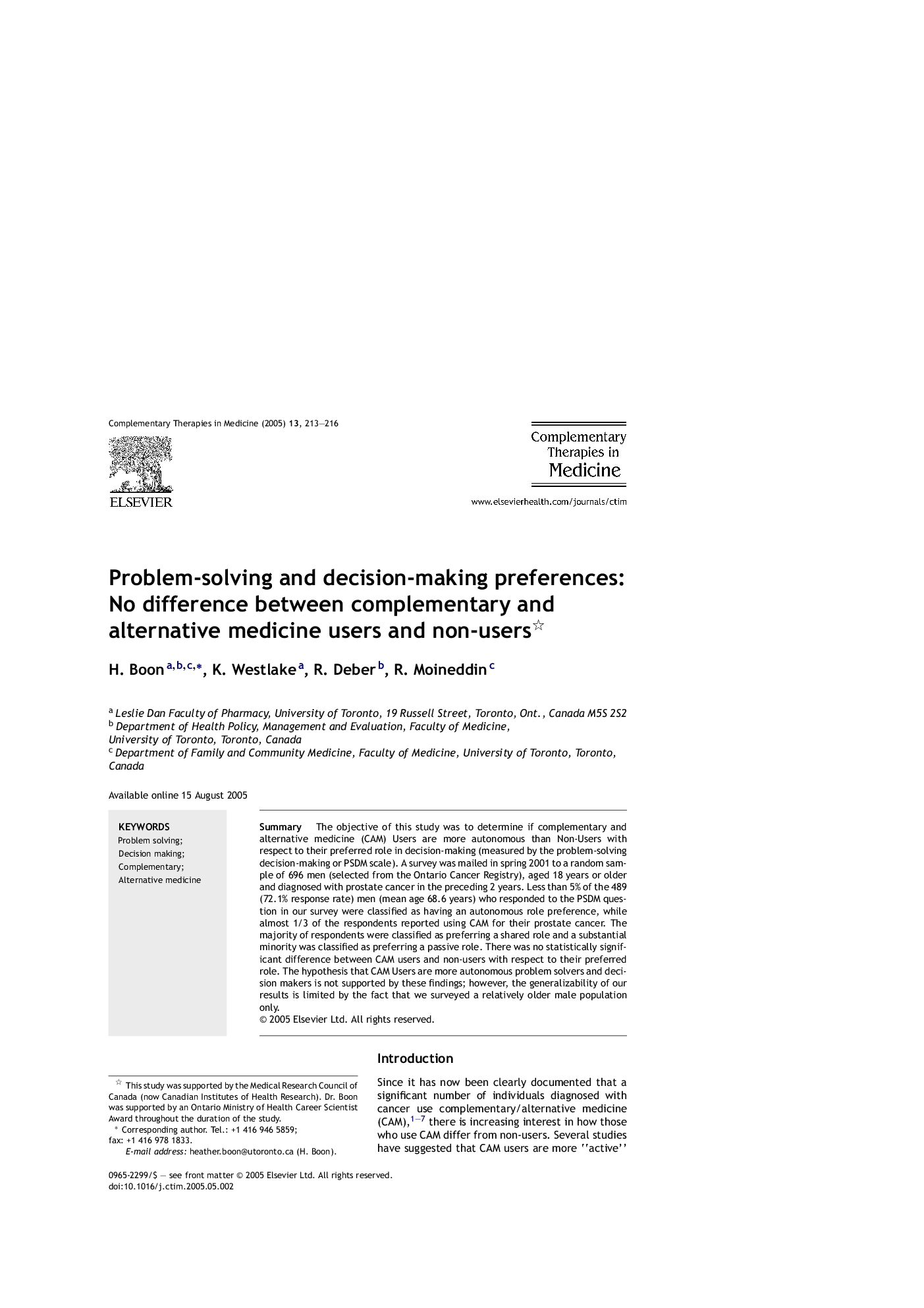| Article ID | Journal | Published Year | Pages | File Type |
|---|---|---|---|---|
| 9051136 | Complementary Therapies in Medicine | 2005 | 4 Pages |
Abstract
The objective of this study was to determine if complementary and alternative medicine (CAM) Users are more autonomous than Non-Users with respect to their preferred role in decision-making (measured by the problem-solving decision-making or PSDM scale). A survey was mailed in spring 2001 to a random sample of 696 men (selected from the Ontario Cancer Registry), aged 18 years or older and diagnosed with prostate cancer in the preceding 2 years. Less than 5% of the 489 (72.1% response rate) men (mean age 68.6 years) who responded to the PSDM question in our survey were classified as having an autonomous role preference, while almost 1/3 of the respondents reported using CAM for their prostate cancer. The majority of respondents were classified as preferring a shared role and a substantial minority was classified as preferring a passive role. There was no statistically significant difference between CAM users and non-users with respect to their preferred role. The hypothesis that CAM Users are more autonomous problem solvers and decision makers is not supported by these findings; however, the generalizability of our results is limited by the fact that we surveyed a relatively older male population only.
Related Topics
Health Sciences
Medicine and Dentistry
Complementary and Alternative Medicine
Authors
H. Boon, K. Westlake, R. Deber, R. Moineddin,
